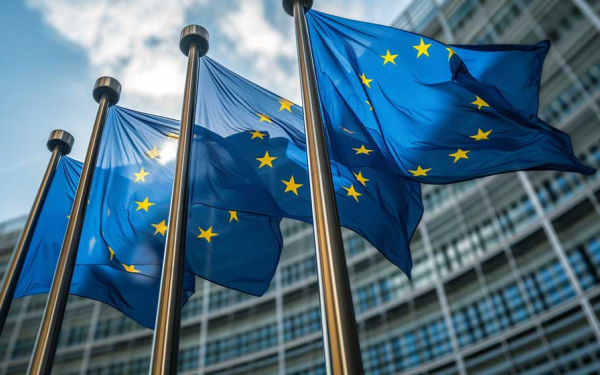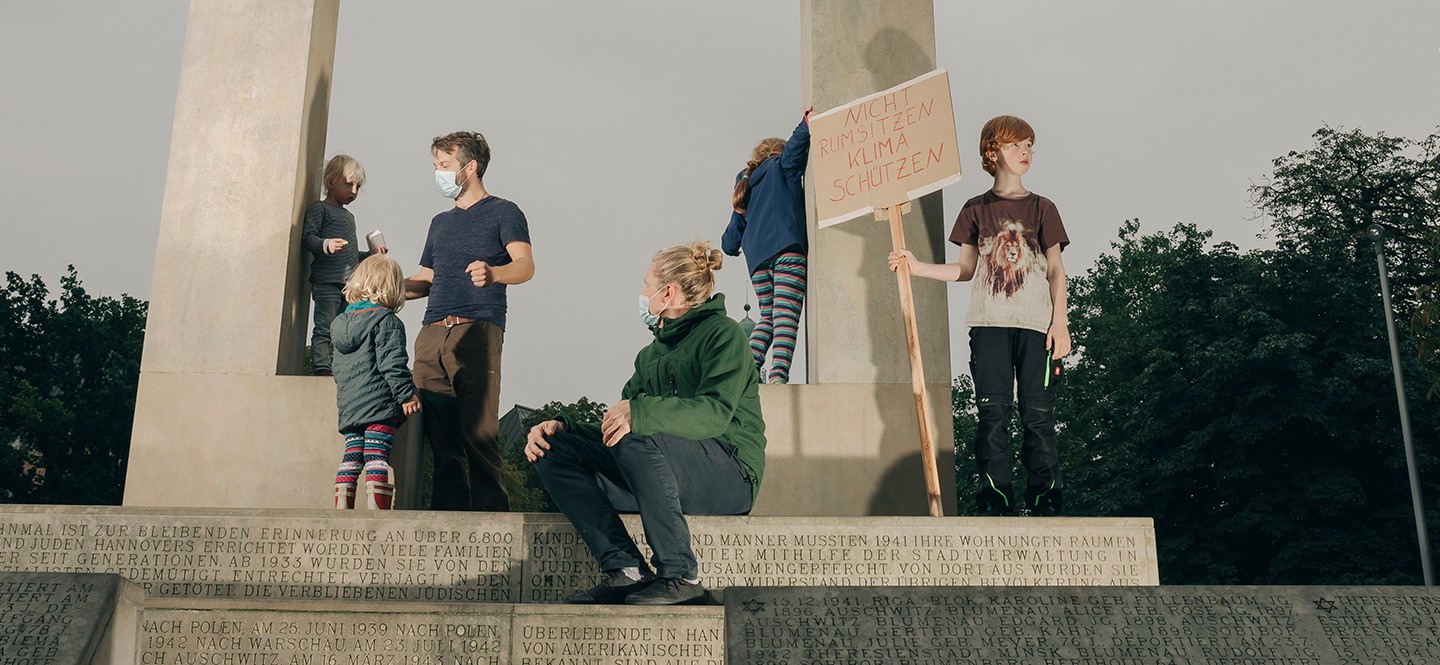
Rafael Heygster
Election victories for authoritarian parties, demonstrations against the right, Fridays for Future and increasing populism: democracies in Europe are coming under pressure. The "ProDem" project has analysed the impact of protest movements on the development of democracy in six European countries.
Democracy in Europe is in a state of flux. Many countries are confronted with growing populist movements and the rise of authoritarian tendencies. In some Eastern European countries, for example, democratic principles are under threat from the restriction of press freedom, the weakening of independent judicial systems, and the abuse of power by governments. At the same time, many Western European democracies are seeing the rise of populist parties and an accompanying division in society. "The polarisation, the hatred, the questioning of long-standing democratic processes – the way things are developing worries me greatly," says Claudius Wagemann, Professor of Political Science at Goethe University Frankfurt.

Claudius Wagemann in a video portrait: understanding political protests
In addition to anti-democratic tendencies, the number of protest movements in Europe is also on the rise. The spectrum of concerns is broad: the roots lie social inequality, climate protection, migration issues, corruption, or the protection of individual (human) rights. Sometimes protest movements even give rise to political parties, so-called movement parties – some of which have managed to enter European parliaments, such as the EU-critical and populist Five Star Party in Italy.
What is the state of democracy in Europe and what impact are protest movements having on developments? This is what Claudius Wagemann and his team wanted to find out in the "ProDem – Protests and Democracy" project.
he polarisation, the hatred, the questioning of long-standing democratic processes – the way things are developing worries me greatly.
Researching protests and democracy
From October 2020 to March 2024, the interdisciplinary research consortium led by Claudius Wagemann investigated social political participation in the form of citizen action groups, protest movements and movement parties and their impact on the development of democracy in Europe. The project was funded by the Volkswagen Foundation as part of the "Challenges for Europe" initiative, which has now ended. In addition to Goethe University Frankfurt, the universities of Copenhagen, Milan, London (City) and the Babeș-Bolyai University in Cluj-Napoca, Romania, are also involved.
The international team, comprising researchers from the fields of political science, communication science and sociology, conducted research in six European countries: Denmark, Germany, Great Britain, Italy, Romania, and Hungary. However, in the case of Hungary they had to conduct their research from Romania: "In Hungary people think twice about whether they want to publish results that might be construed as being critical of the government," explains Wagemann. An example of how anti-democratic tendencies can also affect academic freedom.
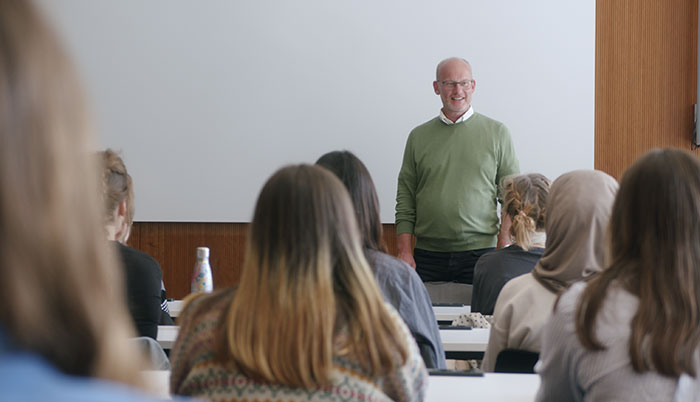
Prof Dr Claudius Wagemann completed his doctorate at the European University Institute in Florence in 2005. He has been Professor of Political Science at Goethe University Frankfurt a. M. since 2012. As a university lecturer and mentor, he is strongly committed to promoting young academics and researchers.
Collaboration with people outside science
The researchers wanted to find out how the quality of democracy should be assessed from the perspective of the population. To this end, they worked closely with non-academic actors, civil society, the media, and political organisations. This transdisciplinary approach allowed for realistic findings and subsequent recommendations for action.
The ProDem team was able to personally present their recommendations on how politics can counteract anti-democratic developments and respond to civil society protests to members of the EU Parliament and the Vice-President of the EU Commission. "It was a quite a highlight of our project that we were able to present our results there. Something like this really doesn't happen very often," says Wagemann. "Our research met with great interest from the politicians. I'm still worried, though, about the state of democracy in Europe. It would be really great if our research helps to change things!"
A research object in motion
Originally, the research group wanted to analyse the effects of protest movements from 2011 to 2019 – from the financial crisis to the Pegida demonstrations and Fridays for Future. But as soon as ProDem was launched, the Covid-19 pandemic brought yet another protest movement into play with the lateral thinking scene.
The team decided to extend the investigation period. "In research, this is called 'aiming at a moving target'. I actually always advise my Bachelor's and Master's students not to do research on highly topical political events because it can unexpectedly become far more complex than initially thought. But as a research group in the ProDem project, we naturally couldn't ignore such a drastic political caesura. Fortunately, the Volkswagen Foundation made this short-term extension possible," explains Wagemann.
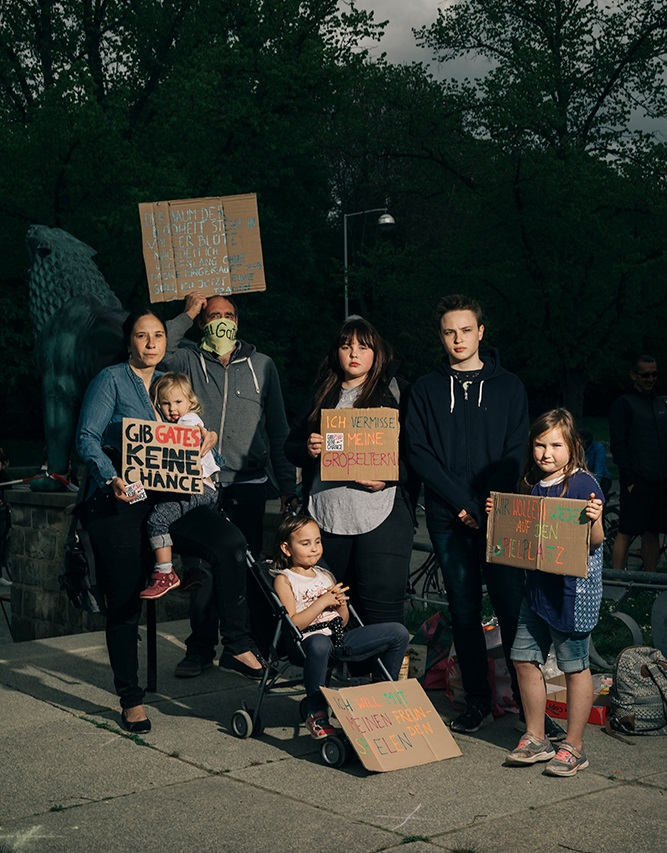
Rafael Heygster photographed demonstrators of various opinions in Hannover in 2022. Including a demonstration against the corona measures.
Many concerns confirmed
The researchers combined a variety of questions and methods. The London team, for example, conducted a population survey in the six countries. In Copenhagen, social media strategies were analysed and in Frankfurt, Wagemann and his team investigated whether and how the concerns of the protest movements are incorporated into politics.
The results of the project confirm many fears. People in Europe are concerned about the declining quality of democracy, according to a key finding of ProDem. A lack of trust in politics is widespread among citizens in Europe – this applies to both national and EU politics. "In this context, it was interesting to see that trust in EU institutions is higher when people lose trust in their own national politics," explains Wagemann. Another result: if citizens distrust democracy, their willingness to participate in it decreases.
Protest movements and their impact on democracy
Studies on the interplay between protest movements and politics show that anti-democratic parties often instrumentalise protest movements for their own goals. In Germany, for example, the Alternative for Germany (AfD) took up a demand from the Pegida movement for more direct democratic procedures. However, while the Pegida supporters based their demand solely on limiting migration, the AfD generalised the appeal and sold it as a (supposed) strengthening of democracy. The tendency for anti-democratic parties to use protest movements to expand their power can also be observed in other countries.
Movement parties, i.e. parties that emerge from protest movements, have so far been ascribed a major role in political science. A common assumption is that the boundary between protest movements and parties is becoming increasingly blurred. ProDem does not confirm this: "In the course of investigating the six countries covered by our project, we found only one genuine movement party that had really emerged from a protest movement: the Five Star Party in Italy. Although parties may like to describe themselves as movement parties, they actually remain quite traditional – or soon become so," explains Wagemann.
Strengthening democracy: future perspectives
The growing number of protest movements illustrates the lively democratic engagement of many citizens. Many of these movements can help to strengthen democracy by putting important issues on the political agenda and making democracy more inclusive.
"The only constant in politics is that of change," explains Wagemann. "And just as society changes, so must political science with its topics and research activities." The research work done by projects such as ProDem and the cooperation with various social actors show that there is a broad interest in understanding and defending democratic principles and the established European value system.
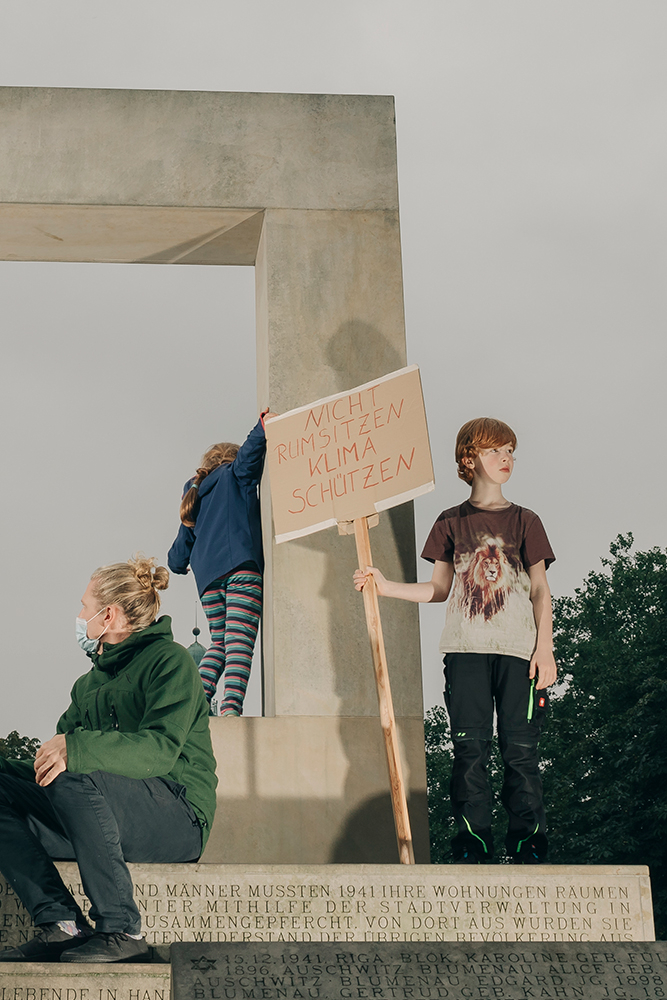
In 2022, Rafael Heygster photographed protests by the Fridays for Future movement in Hanover.
In summer 2024, ProDem will conclude with a joint book containing the research findings. However, Claudius Wagemann and his fellow researchers would like to continue researching democracies in Europe and providing recommendations for policymakers.

